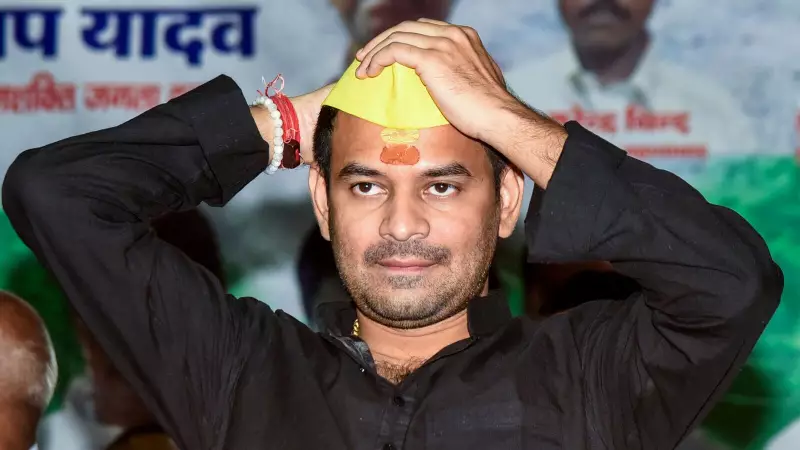
In a significant development that has stirred political circles in poll-bound Bihar, Tej Pratap Yadav, the prominent leader of Rashtriya Janata Dal (RJD) and son of party supremo Lalu Prasad Yadav, finds himself embroiled in controversy for allegedly violating the Model Code of Conduct.
The Police Insignia Controversy
According to election officials, Tej Pratap Yadav was spotted using a vehicle bearing police insignia during his election campaign activities. The unauthorized use of official police logos on private vehicles during election periods constitutes a clear breach of election guidelines established by the Election Commission of India.
The incident has prompted election authorities to take swift action, with a formal case being registered against the high-profile political figure. This development comes at a crucial juncture when political parties are campaigning intensively across the state for the upcoming assembly elections.
JJD Chief Also Faces MCC Heat
In a related development that underscores the Election Commission's strict enforcement of campaign rules, the chief of Janata Janardan Party (JJD) has also been booked for separate Model Code of Conduct violations. The dual cases against prominent political leaders signal the election body's zero-tolerance approach towards any breaches of campaign regulations.
What This Means for Bihar Politics
The timing of these violations couldn't be more critical, with political parties leaving no stone unturned to secure voter support. The Election Commission's proactive stance serves as a strong reminder to all political entities that campaign rules apply equally to everyone, regardless of their political stature or family background.
Political analysts suggest that such violations could potentially impact public perception and voter sentiment, especially when the election commission demonstrates its commitment to ensuring a level playing field for all contestants.
As Bihar prepares for one of the most significant electoral battles in recent times, all eyes remain on how political parties and their leaders conduct themselves during the high-stakes campaign period.





